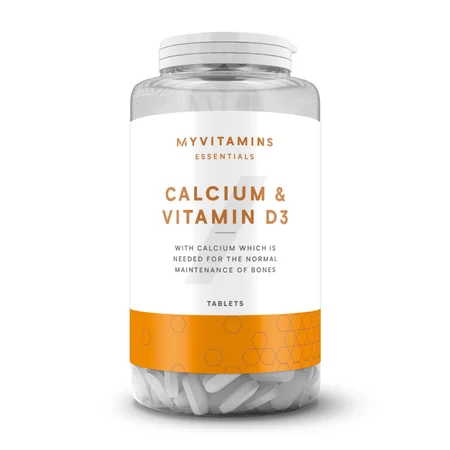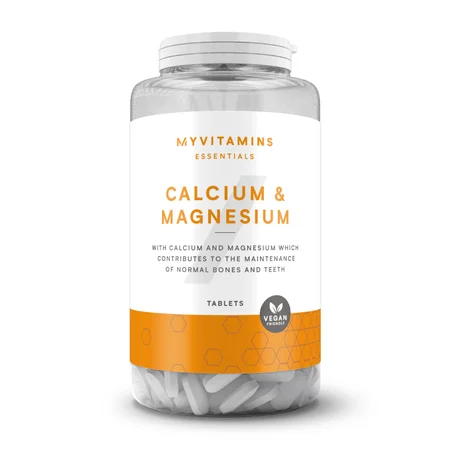Benefits Of Calcium Supplements

Calcium is often said to be one of the most important minerals we need in our diets. It plays a wide range of roles in the body, but it’s probably best known for its role in maintaining healthy bones and teeth. In this article, we’ll discuss the benefits of calcium, what foods are the best sources of it, and what happens if you consume too much of it.
- What is calcium?
- Why do we need calcium?
- What are the benefits of calcium?
- How much calcium do I need?
- Calcium supplements?
- What happens if you consume too much calcium?
What is calcium?
Calcium is a mineral that helps to keep your bones and teeth healthy. It is found naturally in dairy products like milk, cheese and yoghurt, green leafy vegetables, nuts, and legumes. Fish with edible bones, such as sardines and pilchards, are also good sources of calcium.
Why do we need calcium?
Most calcium in the body is found in the bones and its major role is maintaining the health of bones and teeth. It’s one of the most abundant minerals in the human body and plays a role in regulating almost all biological functions.1 Calcium is also needed for healthy muscle and nerve function.2
Calcium requirements vary from person to person. Regular healthy adults typically need about 700mg per day, but the recommendation is higher for people with certain health conditions or who are breastfeeding.2
Those who do not consume dairy products or follow a lactose-free diet are also at a higher risk of calcium deficiency.2 Consuming soy milk or calcium-fortified versions of dairy alternatives is one way to increase calcium consumption.
What are the benefits of calcium?
Maintains the health of bones and teeth
Calcium is essential for maintaining healthy bones and teeth and avoiding potentially serious health conditions. Calcium is the major component of bone, and it is essential for bone strength and structure.3
Needed for muscle contraction
Calcium regulates muscle contraction by activating the components of muscle fibres — actin and myosin — which “slide” over each other in a process called excitation-contraction coupling.4 Without calcium this process cannot occur.
How much calcium do I need?
Calcium requirements vary depending on age. For adolescents between the ages of 11 and 18, the daily recommended intake is 800mg for girls and 1000mg for boys.3 For adults, it is 700mg.3 Higher daily intake is also advised for people who are breastfeeding (1250mg) and have health conditions such as coeliac disease (1000-1500mg) and osteoporosis (700mg).3
Calcium Supplements
Calcium & Magnesium Tablets
Magnesium also plays a key role in bone health as it is also one of the main components of bone and helps promote bone growth and regeneration.5 The daily recommended intake of magnesium is 300mg for men and 270mg for women. Calcium & Magnesium Tablets contain 800mg of calcium and 375mg of magnesium per suggested serving of three tablets.
Calcium & Vitamin D3 Tablets
Vitamin D helps regulate the amount of calcium in the body. Without it, the body cannot properly absorb calcium. Vitamin D is also important for maintaining muscle strength.6 Adults should consider supplementing vitamin D every day throughout the winter and autumn months.6 Calcium & Vitamin D3 Tablets contain 5μg (micrograms) of vitamin D and 800mg of calcium per suggested serving of two tablets.
A-Z Multivitamin Tablets
As well as containing 200mg of calcium per tablet, the Multivitamin A-Z contains a vast range of other essential vitamins and minerals needed for good immune and cognitive function, as well as reducing tiredness and fatigue.
What happens if you consume too much calcium?
As with many nutrients, too much of something can be a bad thing. The side effects of excessive calcium consumption include:
Gastrointestinal symptoms
High doses of calcium can cause gastrointestinal issues such as bloating, gas, diarrhoea and constipation.7
Take home message
Calcium is important for healthy bones and teeth and also plays a key role in muscle contraction. Calcium is typically found in dairy products but it can also be found in leafy green vegetables, nuts, and legumes. Healthy adults should consume about 700mg a day, and supplements may help achieve this. However, consuming too much calcium may lead to symptoms such as gastrointestinal discomfort.
READ THESE NEXT:

Liam is a certified sport nutritionist with the International Society of Sport Nutrition and is enrolled on the British Dietetics Association’s Sport and Exercise Nutrition register. He has a Bachelor’s of Science in Sport and Exercise Science and is graduate of the ISSN Diploma in Applied Sport and Exercise Nutrition.
Liam is an experienced personal trainer, helping clients reach their health and fitness goals with practical, evidence informed exercise and nutrition advice. In his spare time Liam has competed in numerous powerlifting competitions and enjoys hill walking, football and expanding his recipe repertoire in the kitchen.Find out more about Liam's experience here.
1. Zhang P, Zheng CB, Chen Z, Liu XY. Editorial: The Role of Calcium Channels in Human Health and Disease. Front Mol Biosci. 2022 Jan 21;9:834108. doi: 10.3389/fmolb.2022.834108. PMID: 35127831; PMCID: PMC8815767.
2. Bda.uk.com. 2022. Calcium. [online] Available at: <https://www.bda.uk.com/resource/calcium.html> [Accessed 5 August 2022].
3. Vannucci L, Fossi C, Quattrini S, Guasti L, Pampaloni B, Gronchi G, Giusti F, Romagnoli C, Cianferotti L, Marcucci G, Brandi ML. Calcium Intake in Bone Health: A Focus on Calcium-Rich Mineral Waters. Nutrients. 2018 Dec 5;10(12):1930. doi: 10.3390/nu10121930. PMID: 30563174; PMCID: PMC6316542.
4. Kuo IY, Ehrlich BE. Signaling in muscle contraction. Cold Spring Harb Perspect Biol. 2015 Feb 2;7(2):a006023. doi: 10.1101/cshperspect.a006023. PMID: 25646377; PMCID: PMC4315934.
5. Zhang J, Tang L, Qi H, Zhao Q, Liu Y, Zhang Y. Dual Function of Magnesium in Bone Biomineralization. Adv Healthc Mater. 2019 Nov;8(21):e1901030. doi: 10.1002/adhm.201901030. Epub 2019 Oct 4. PMID: 31583846.
6. Bda.uk.com. 2022. Vitamin D. [online] Available at: <https://www.bda.uk.com/resource/vitamin-d.html> [Accessed 5 August 2022].
7. Li K, Wang XF, Li DY, Chen YC, Zhao LJ, Liu XG, Guo YF, Shen J, Lin X, Deng J, Zhou R, Deng HW. The good, the bad, and the ugly of calcium supplementation: a review of calcium intake on human health. Clin Interv Aging. 2018 Nov 28;13:2443-2452. doi: 10.2147/CIA.S157523. PMID: 30568435; PMCID: PMC6276611.









